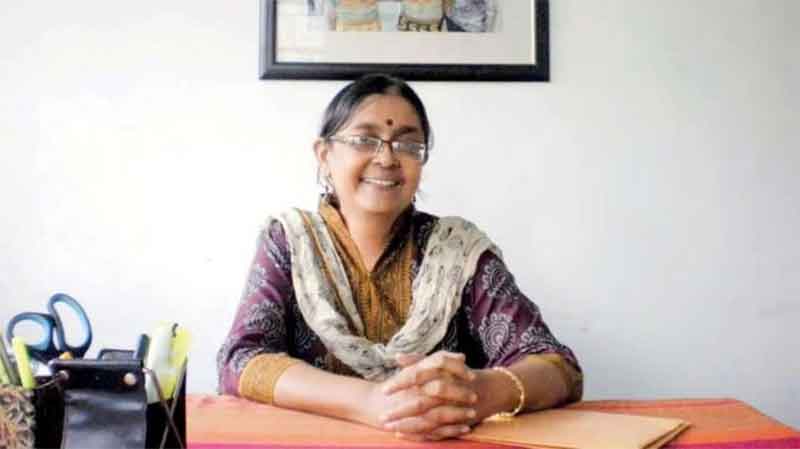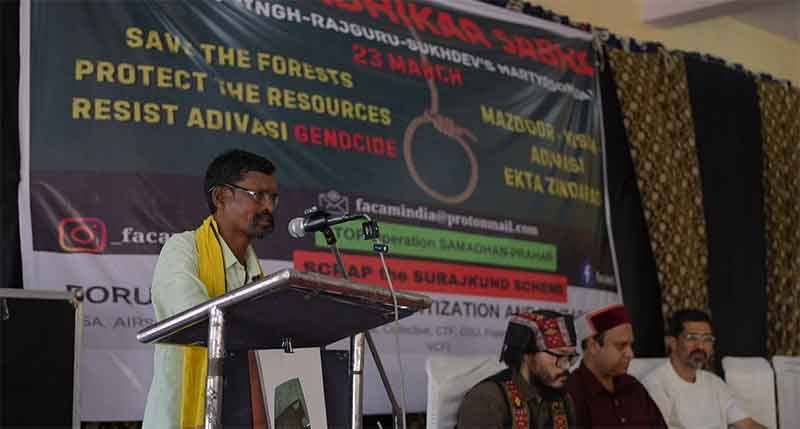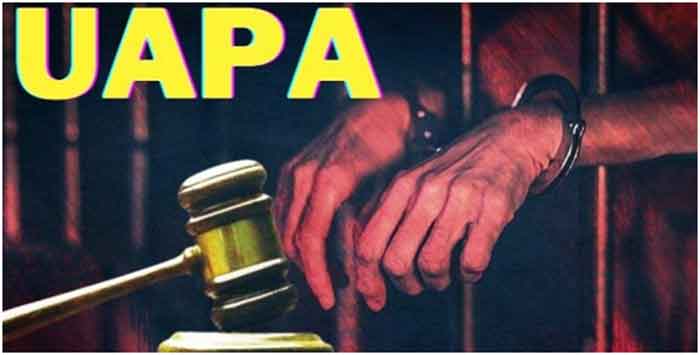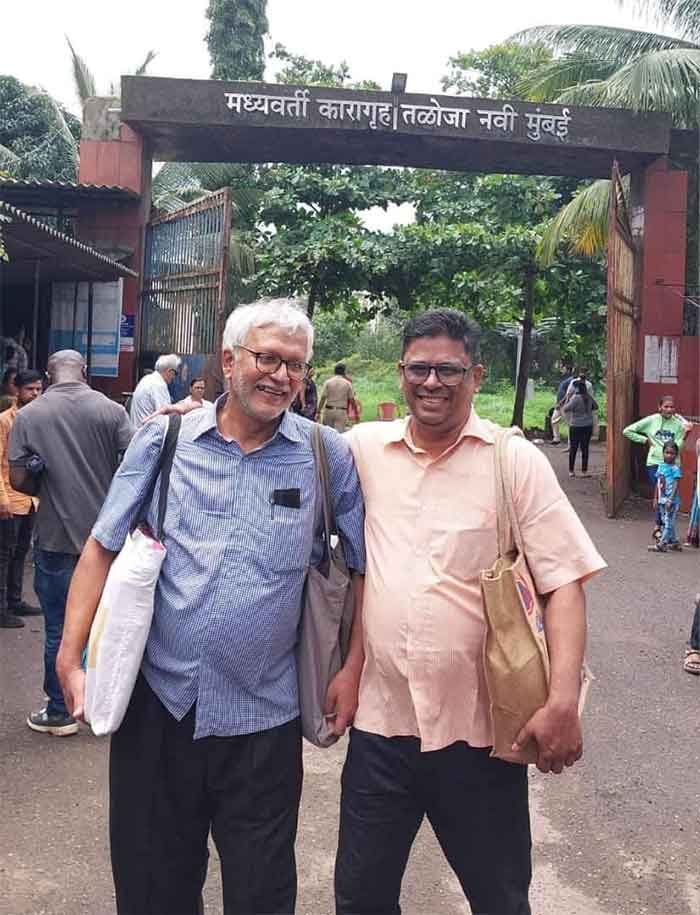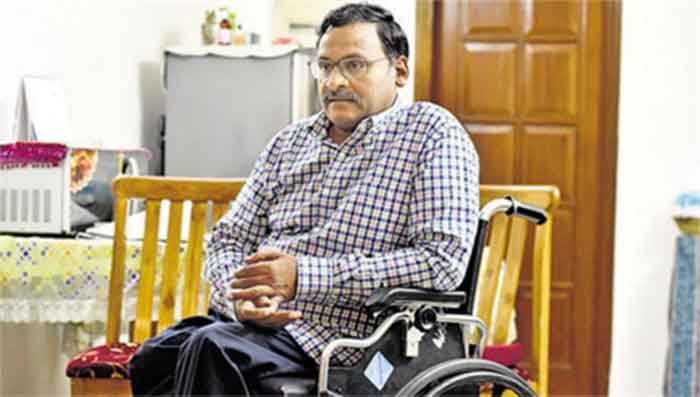
In 2016, a Supreme Court Judge asked the state of Maharashtra, “Do you want to extract a pound of flesh?” The statement was directed against the state for contesting the bail plea of Delhi University Professor G. N. Saibaba. Saibaba was arrested in 2014, a justification for which was to prevent him from committing what the police called “anti-national activities.”
Saibaba, a 90% disabled man, was kept in solitary confinement. Less than a year after being granted bailment by the Supreme Court, he was convicted to life imprisonment, along with five others by Maharashtra District court under the Unlawful Activities Prevention Act, 1967 for political beliefs and Maoists sympathies. This case revives the question around the UAPA, at the heart of which is “What is a crime?” and “Who is a criminal?”
However, Saibaba’s real “crime” was being one of the people who campaigned against what was known as Operation Green Hunt where the government had created vigilante groups as well as moved paramilitary forces into the forest of Central India where they had signed Memorandum of Understanding for moving indigenous people out of their lands to give it over to the mining companies. There was absolute violence inside those villages, setting them on fire, raping killing, and displacing people. All of this conducted in the garb of an anti-naxalite operation that began in 2009. Despite that, the people protesting displacements are being called anti-nationals. When Arundhati Roy, activist and Booker Prize winner, expressed concerns in an article regarding the prosecution and incarceration of a paraplegic professor, she was charged with contempt of court and had a criminal case against her.
UAPA has been disproportionately targeted against minorities (Muslims, Dalits, Adivasis), activists, human rights defenders and political opponents. According to Prison Statistics of India, while Muslims, Dalits and Adivasis accounted for 39% of Indian Population, they accounted for 53% og prison population. Besides Saibaba, the five people convicted are journalists, social activists, students, and tribals. To quote an excerpt from the judgment, “they hatched criminal conspiracy to wage war against the Government of India and to collect people with the intention of waging war against the Government of India.” The police mentioned that he was found in possession of Maoist literature.
There are several issues with UAPA. There are overly broad and ambiguous definitions of terrorism that fail to satisfy the principle of legality. The 2008 amendment of UAPA follows its precedent POTA by specifying that an unlawful act is one carried out with the intention to “threaten the unity, integrity, security or sovereignty of India or… to strike terror… in the people”. However, the amendments also broaden the previous POTA definition, by specifying that any act “likely to threaten the unity, integrity, security or sovereignty of India” or any act “likely to strike terror in the people…in India or in any foreign country” is also a terrorist act (emphasis added). This leads to incorporating subjectivity into the definition and even extends the definition extra-territorially. So, you don’t actually have to commit a crime to be booked under this law. You could be arrested for attending a protest meeting or reading a book on revolution, or even not standing for the National Anthem. Gautam Navlakha has pointed it out several times that the law essentially punishes people for “thought” crimes, if their ideology differs from the government. The convictions under the act are low. On an average, from 2014 to 2016, 75 percent cases have ended in acquittal/discharge because the arrests were made on flimsiest of evidence.
The vague definitions are used by authorities to label Muslims as aiding and abetting activities of SIMI (organization banned since September 2001). Cases in point are the withdrawal of money from own savings account being treated as financing SIMI, member of masjid committee being treated as hosting SIMI, and so on. Similarly, political dissenters (including members of Dalit and tribal communities) are lumped together as members of banned Maoist groups. Cases in point are Sudhir Dhawale, Surendra Gadling, Shoma Sen, Mahesh Raut, and Rona Wilson – all Dalit activists – allegedly for being associated with the “Elgar Parishad.” (Bhima Koregaon). The vagueness also creates a barrier of judicial review, where the judiciary has failed to differentiate the cases of law and order and national sovereignty. The judge in Saibaba’s case said, “In my opinion, the life imprisonment is also not the sufficient punishment to the accused.”
The pretrial investigation and detention procedures infringe upon due process and personal liberty. The recharge detention of 180 days without bail, provides enough time to the authorities to gather adverse evidence against the accused. In addition, there is an assumed presumption of guilt in the special law, and the burden of proof falls on the accused. There is a lack of sufficient oversight of police and prosecutorial decision making, which leads to arbitrary, discriminatory, and dis-uniform application. There are broad immunities from prosecution of government officials. The act provides extensive power to national and state governments, military & police to set up special courts in “terrorist affected” areas, allow extra-judicial criminal procedures like stop, search, use force, and preventively detain individuals.
The other issue is that the law does not have the provision for anticipatory bail. Bail is difficult because you have to prove that prima facie there is no case. All of these provisions make sure that the process of going through a trial is itself torturous. The earlier versions of the anti-terror legislations used to have a “sunset” clause, under which the law ceases to have effect after a fixed point of time. In contrast, the UAPA is a permanent statute, which means it does not need to be sent to Parliament for a new life.
Dr. Saibaba’s health condition requires constant and immediate medical care and is reaching the point of a life-threatening, according to UN Special Rapporteurs. The Indian Prison system presents severe hardships, especially for the elderly. Despite his physical challenge Saibaba was locked up in the “Anda” cells, poorly ventilated with very little space to move. The insufficient medical aid and lack of support from prison authorities create an extremely inhospitable infrastructure of prisons. There are instances like human rights activist Gautam Navlakha being denied a pair of spectacles, Father Stan Swamy, suffering from Parkinson’s disease, not receiving minimal support, and dependent on help from prison inmates. Safoora Zargar was charged under UAPA a Northeast Delhi riots case and had been in jail until recently for over a month without the prospect of bail. This was despite her pregnant condition and the risk of being exposed to the coronavirus due to the overcrowded prison in Delhi. Recently, she was allowed to visit her maternal home for two months for proper nursing of her child, postpartum care and other customs.
The costs of UAPA are not limited to individuals, but extend to entire communities and villages. There are evidences of towns with Muslims-majority community being described as breeding grounds for terrorism, on the pretext of “large, uneducated Muslim youths.” For example, Azamgarh (UP) and Bhatkal (Karnataka) remain in the institutional memory as terror models. This leads to linking cases in any part of India to these towns. Bhatkal (94.1% literacy rate) has become synonymous with Yasin Bhatkal (associated with Indian Mujahidin). As a result, despite its premier education facilities and more than a few hospitals, there was a severe shortage of professionals, such as doctors (especially gynaecologists) and teachers.
Such unforgivable laws like UAPA raise questions on the constitutionality of such special acts, and their impact on civil liberties.
References:
The ideas are based on conversation with Pushpa Achanta, activist and journalist
The Wire, Preventing Justice, https://thewire.in/politics/preventing-justice-g-n-saibaba-and-the-forced-exceptions-of-the-uapa
OutlookIndia, Professor P.O.W., https://magazine.outlookindia.com/story/professor-pow/294265
The Hindu, Green Hunt, https://www.thehindu.com/opinion/op-ed/Green-Hunt-the-anatomy-of-an-operation/article16812797.ece
Article-14, Lost lives of Muslim terror suspects, https://www.article-14.com/post/the-lost-lives-of-india-s-muslim-terror-suspects
Kunal Pant, Second year student at IIM Ahmedabad
SIGN UP FOR COUNTERCURRENTS DAILY NEWSLETTER


